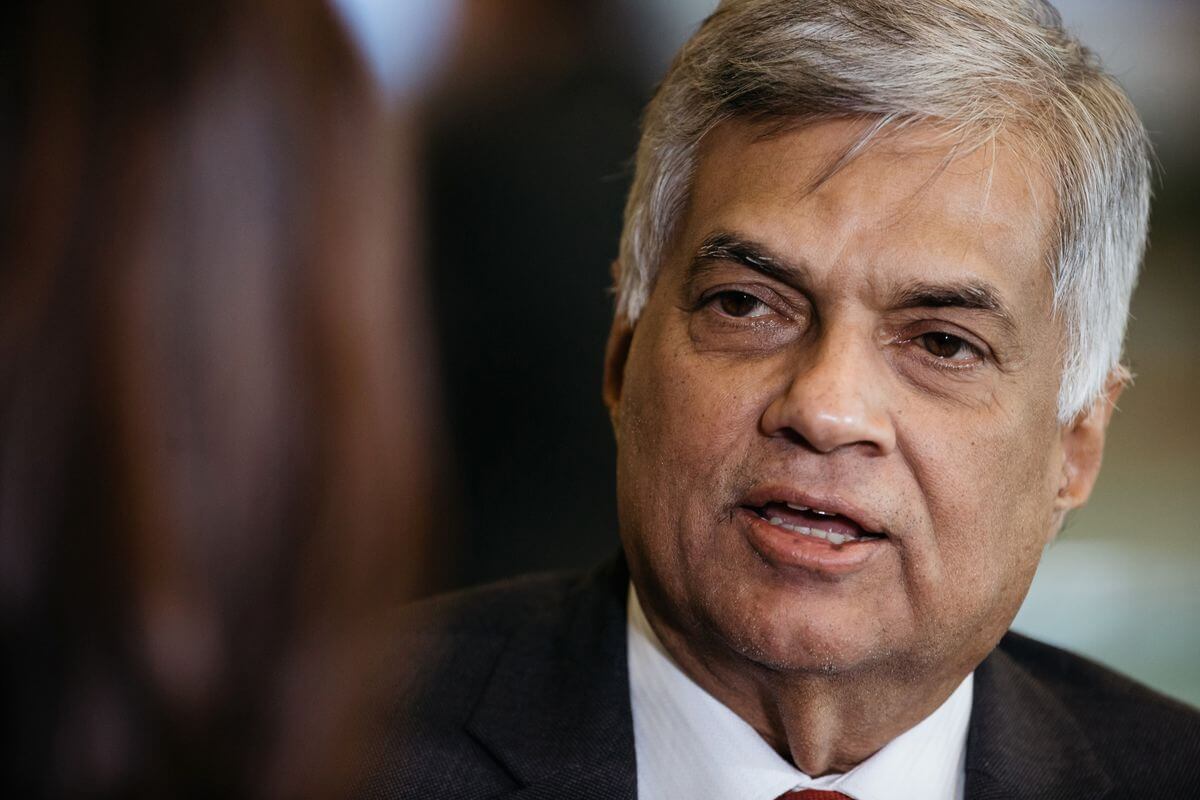Tamil National Alliance lawmaker MA Sumanthiran hit out at Prime Minister (PM) Ranil Wickremesinghe’s “absolutely shameless conduct,” after he refused to support a motion to sidestep a parliamentary procedure and expedite discussion on a Motion of Displeasure against President Gotabaya Rajapaksa.
He said that the newly-appointed PM has given up his principles for the position and colluded with the Rajapaksa family rather than working to repair the Sri Lankan economy. Similarly, Rohini Kavirathna said Wickremesinghe had become a “puppet” of the Rajapaksas.
The proposal to suspend Parliament Standing Orders and debate the Motion expressing displeasure over the President as a matter of urgency, rejected in Parliament by a majority vote.
— Dasuni Athauda (@AthaudaDasuni) May 17, 2022
▪️119 against
▫️68 in favor
PM @RW_UNP also voted against the motion. #lka #SriLankaCrisis
Wickremesinghe, however, blamed the opposition leaders’ “wrong strategy” for the failure of the motion. The PM’s office said that he has advised opposition leaders against suspending the Standing Orders to forgo the parliamentary procedure that precedes a trust vote.
He said that even if he had been in the opposition, he still would have chosen to oppose the “self-defeating” motion, as it prioritises the “symbolic Motion of Displeasure” over a discussion on the death of a legislature in a mob attack.
Moreover, he warned that legislators supporting President Rajapaksa would now use this failed motion to block any attempt to introduce a Motion of Displeasure in the future. Nevertheless, he reassured his party’s support for any such motion in the future and urged the opposition to adopt a “better strategic approach.”
📢 PRESS RELEASE
— Parliament of Sri Lanka (@ParliamentLK) May 17, 2022
The motion to suspend the Standing Orders in order to debate the motion expressed displeasure
towards the President, rejected by a majority of 51 votes.#SLparliament #lka #SriLanka pic.twitter.com/BKtjs3v2WO
The motion was introduced by Sumanthiran and supported by Chief Opposition Whip Lakshman Kiriella. Sumanthiran clarified that the motion aimed to expedite discussions on expressing displeasure against the President and not call for a trust vote.
It accused Rajapaksa of worsening the economic crisis by introducing improperly timed tax remittances and banning chemical fertilisers, which significantly reduced farm produce and exacerbated food insecurity. Furthermore, it argued that the Rajapaksa government used the pandemic as a prtetext to increase the powers of the military. The government has also supported non-scientific recommendations and made deals for the purchase of overpriced vaccines from China.
The Prime Minister had informed the Opposition that voting to suspend Standing Orders was a poor Parliamentary strategy.
— UNP (@officialunp) May 17, 2022
Supporting the motion, opposition leader Mujibar Rahuman said, “The objective of getting the motion passed on an urgent basis was to show that the president no longer enjoys the confidence of the parliament.”
However, legislators voted against the resolution, with 119 votes against and merely 68 voting in favour. As a result, the possibility of a trust vote being held now appears uncertain.
The Motion of Displeasure was brought in during the first session of the Parliament under the leadership of newly-appointed PM Wickremesinghe. During the discussions, the legislators also voted to elect Ajith Rajapakse as the new Deputy Speaker.
4. Now President's MPs would use the defeat of this vote as an opportunity to block the Motion of Displeasure being taken up at a later date. #SriLanka
— Ranil Wickremesinghe (@RW_UNP) May 17, 2022
5/ It would be best if the Opposition used a better strategic approach going forward. Nevertheless, wish to reaffirm our commitment to vote in favour of the motion as communicated earlier last week.#SriLanka
— Ranil Wickremesinghe (@RW_UNP) May 17, 2022
The opposition has already introduced a no-confidence motion against the president. However, the trust vote would not be binding on Rajapaksa. However, as the president is directly elected by the people, the Parliament does not have the power to oust him.
Nevertheless, if a vote of no confidence were to be passed, it would greatly impact his popularity as it would indicate that the elected legislators no longer have the support of the President. Hence, he could be compelled to step down from his position to appease the public.
Meanwhile, protests continue across the country with citizens calling for Rajapaksa’s ouster. They are also frustrated by hours-long power cuts, long queues for fuel, and severe shortages of essential items such as food and medicine.
2/ I advised M.P. Sumanthiran on the 16th that this would be self-defeating, as government MPs who were wanting to debate the attacks on their houses would not vote in favour to immediately debate the Motion of Displeasure.#SriLanka
— Ranil Wickremesinghe (@RW_UNP) May 17, 2022
Nevertheless, Sri Lanka got some respite as the government secured the purchase of petrol after making a payment of $7 million for two gas vessels. State-owned Litro Gas said that it would distribute 80,000 cylinders each day starting Wednesday. This came as a minor relief for the country, particularly with Wickremesinghe’s warning that there were only petrol stocks remaining for one day.
In other related developments, the United Kingdom’s (UK) House of Lords hosted discussions on the ongoing economic crisis in Sri Lanka too. On Monday, Minister of State, Foreign, Commonwealth and Development Office Lord Tariq Ahmad said that the British government was “closely monitoring” the situation and welcomed “in-depth discussions” with the International Monetary Fund on providing the cash-strapped country with financial assistance. He added, “The World Bank, to which the United Kingdom is a major donor, is providing support to health services and low-income families.”
However, he highlighted that the crisis did not occur suddenly. It drew attention to the “issue of China’s reach in the Indo-Pacific” through its infrastructural development projects. Hence, he recommended that the UK should work with her partnership to “offer an alternative method that allows a country not to be indebted but to service its debt and, at the same time, to move forward constructively.”

